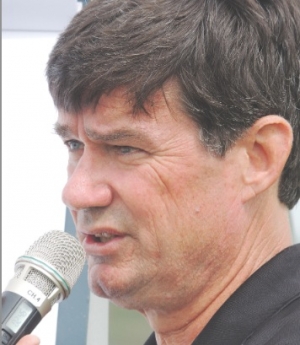Results from the first two years of a five-year trial in Northland, Waikato and Canterbury indicate higher seed rates are detrimental in times of stress, DairyNZ primary research scientist David Chapman explained at a field day on Fonterra’s Jordan Valley farm, Hikurangi, last month [June 6].
Pastures were sown at seed rates ranging from 6kg/ha to 30kg/ha in 2010 with markers used to check plant survival.
In Canterbury and Waikato, plots sown at 6kg/ha to 18kg/ha survived the 2011/12 season better than those sown at 30kg/ha, especially in Waikato where plants sown at the lower seed rates were 15% more likely to survive.
However, in Northland a “champagne summer” in 2011-2012 saw no marked difference in survival.
The researchers hypothesize that where there were differences it is because plants sown at high seed rates are smaller making them more vunerable at times of stress.
Chapman notes this is in line with 1990s work in New Zealand and Australia which found extra competition from higher seed rates resulted in higher mortality when under stress, especially if stressed in the first summer after seeding.
“The ryegrass’ growth strategy tends to be to compete strongly for light. It favours putting energy into getting leaf growth at the expense of building root structure so in circumstances of drought it can fall over, especially when it has faced overgrazing.”
While lower seed rate may aid pasture persistence, Chapman warns this can be undone by putting pasture under too much pressure.
The trial includes AR37 endophyte-treated diploids Alto and Grasslands Commando, and tetraploid Grasslands Halo, as well as standard endophyte diploid Nui. All of the grasses performed similarly for a given seed rate.
With the research due to run at least five years Chapman stresses findings to date are by no means final. “We’re two years into it and its just starting to get interesting.”
Results for the drought affected 2012-13 season are yet to be processed.

















